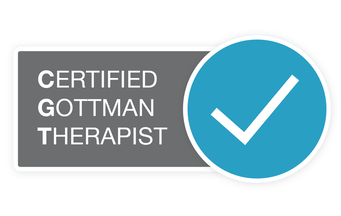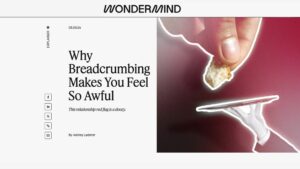Fall/winter is usually pretty low energy in general, and although we know socializing is good for us, it can be tougher to self-motivate to get together with friends. Is it normal to feel like you have less energy to give to your platonic relationships when the days are shorter/darker, and why?
During fall and winter, most of us settle into a “wintering” or nesting frame of mind, spirit, and body. For some people, the production of the feel-good chemical, known as serotonin, slows down causing a form of depression known as seasonal affective disorder (SAD) to occur. Shorter days, less sunlight, and more indoor time being inactive, all impact the way we feel about ourselves and by extension our ability to socialize and participate in relationships in a meaningful way.
When most of us have problems motivating ourselves to get out of our warm bed or to even do enough self-care to shave our legs, it’s difficult to muster up the energy to be present and emotionally connected with another person– even if it’s a friend.
How might this be an opportunity to be more intentional in your social life in terms of friends you’re giving your energy to? In other words, why is fall a wonderful time to let go of toxic friendships?
If the friend and you have a history of disappointing unresolved hurts or events and continue to experience missed opportunities for connection in the relationship, then it makes it easier to want to pull back a bit.
Tell yourself that it’s ok to use this time of year as a time to pause and reflect on what worked or didn’t work earlier in the year in ALL your relationships. Look for patterns in the way you feel about your relationship interactions across the board. If there is a consistent feeling of disappointment in all of them, or does just one relationship stand out as unfulfilling. It’s also a time of year to be intentional about any boundaries you need to clean up or what patterns of behavior you want to discontinue that aren’t serving you moving forward into the next year. Fall and winter is about rest and renewal so you can come back strong and clear about what you want your life to look like moving forward.

Sometimes we are friends with people for a season in our life and they are not always meant to be a “forever” friend because you will both continue to grow and change at different points. The friend who is not growing or changing at the same rate or is at a different life point may have different values or goals for their friendships. The things that brought you together at a certain time in each other’s lives may evaporate. For example, if you had a friend who used to be your drinking buddy on Saturday nights, and now one of you is married and has a new baby-the things that kept you connected once upon a time may no longer be available, causing strain on the relationship.
You may be feeling this disconnect and blame yourself when the friendship is no longer working. Remember, it takes two people to make the relationship work and grow. Assuming you will always be at the same place spiritually or have the same benchmarks in your journey is not always sustainable. Beating yourself up for coming to a point in your life where you need different things in your friendships is not helpful and doesn’t keep you connected.
How would you define a toxic friendship?
A toxic friendship is often one-sided, meaning after your interactions with each other, they feel better, and you feel worse. The people in friendships may not be able to hold healthy boundaries with each other, are too dependent on how the other person feels about them to the breakdown of their self-esteem or the emotional output and support are not reciprocal. A toxic friend may be jealous or envious of you and may not be a person who is in your corner when you need them. A toxic friend may even get satisfaction from or even looks forward to you experiencing sadness or setbacks.
Many times, a toxic friendship makes you feel worse about yourself than you would if this person were not in your life. A toxic friendship leaves you feeling anxious, judged, or even worried that you don’t know how to be a friend because none of the good intentions you bring to the friendship bring you long term connection or emotional safety.
How can you identify a friendship as toxic?
Does your friend only talk about themselves and never ask how you are doing or what has been happening with you? Do they minimize your emotions or fail to acknowledge your perspective when you talk about your feelings?
Does your friend give you the sneaking suspicion that you might be getting gaslit? Does your friend make it a point to remember to include you in making decisions that impact you or does every decision feel like it’s all about them and their needs?

Does your friend have difficulty accepting responsibility for their part in disagreements, misunderstandings, or hurt feelings? Do they spend the majority of time acting as if they are being victimized by something you did to them and minimize their role in their own hurt feelings?
Does your friend seem to abandon you when you need support, understanding, or do you wonder why you never feel like you a best friend in your corner when things go wrong?
If you answer yes to several of these questions you may need to consider if you are in a toxic relationship.
Why do we hold onto toxic friendships even when we know they’re problematic?
Unfortunately, sometimes the things that keep toxic friendships going are familiarity, time, and lack of energy to pursue new or more fulfilling friendships. Sometimes we get so busy that we don’t have the ability to find the time to properly put into building new friendships or we don’t have the self-confidence to know we are going to be well received by others. Because being in a toxic friendship can be such a blow to our ego and self-esteem, we get scared.
Being in a toxic relationship can create it’s own spiral that keeps someone afraid of more potential rejection or being leery of the needed vulnerability to put themselves out there in a new relationship because they assume they will have a similar outcome in all their connections.
Maybe the toxic friend has convinced you that you are not good at being in a friendship and they are doing you a favor by being in a friendship with you. This mindset can discourage you from even trying to find other friends because you have convinced yourself you are the problem.
How might honing your sense of self help you weed out a toxic friendship? How can you do this?
Setting healthy boundaries is the first course of action to clean up your toxic relationships. Having boundaries means you understand why it’s important to have them in the first place.
Putting healthy boundaries in place is done so your life makes sense and lets you experience ease in ALL your relationships. You don’t move or alter your boundaries based on who you are with.
You must understand why you are in a friendship and why you choose who you chose to get to spend time with you. You know how you want to feel when you are in friendships and aren’t willing to compromise to avoid being alone. You also need to spend time getting ok with other people not liking, accepting, or understanding your boundaries.
Other people don’t have to give you approval to live your life the way that is in alignment with your own goals and expectations of friendships in your life. If your friend can’t or won’t allow you to be who you are and need what you need then they may not be the best friend choice for you. When you can honestly say and believe “not everyone is a good fit to be my friend”, then you are on your way to doing a better job at weeding out bad friendship choices.
What are some other concrete, actionable tips for weeding out toxic friendships in general? Especially in the fall/winter (which could present extra challenges like holidays that you usually get together with this person for)?
Limit the amount of time you spend with a toxic friend who you are not ready to let go of yet. Make sure you let them know at the beginning of your visit, or right beforehand, that you will need to leave in a few hours, so you have made a declaration you intend to stick with. Being around a toxic friend can be very draining, so make sure you have something calm or soothing to do afterwards so you have some space to recharge emotionally.
Also minimize your expectations of what this person will be able to give to you in the way of emotional support, understanding, or closeness. If you enjoy hanging out with this person going shopping for example, then stick to the things you can do with this person that don’t leave you feeling disappointed. The pal who you know is not capable of providing empathy or compassion is NOT the friend to go to with problems about your dating relationships. You may need to keep it surface level and learn to appreciate this friendship for the parts that are working well and not try to over-extend it’s limitations.







